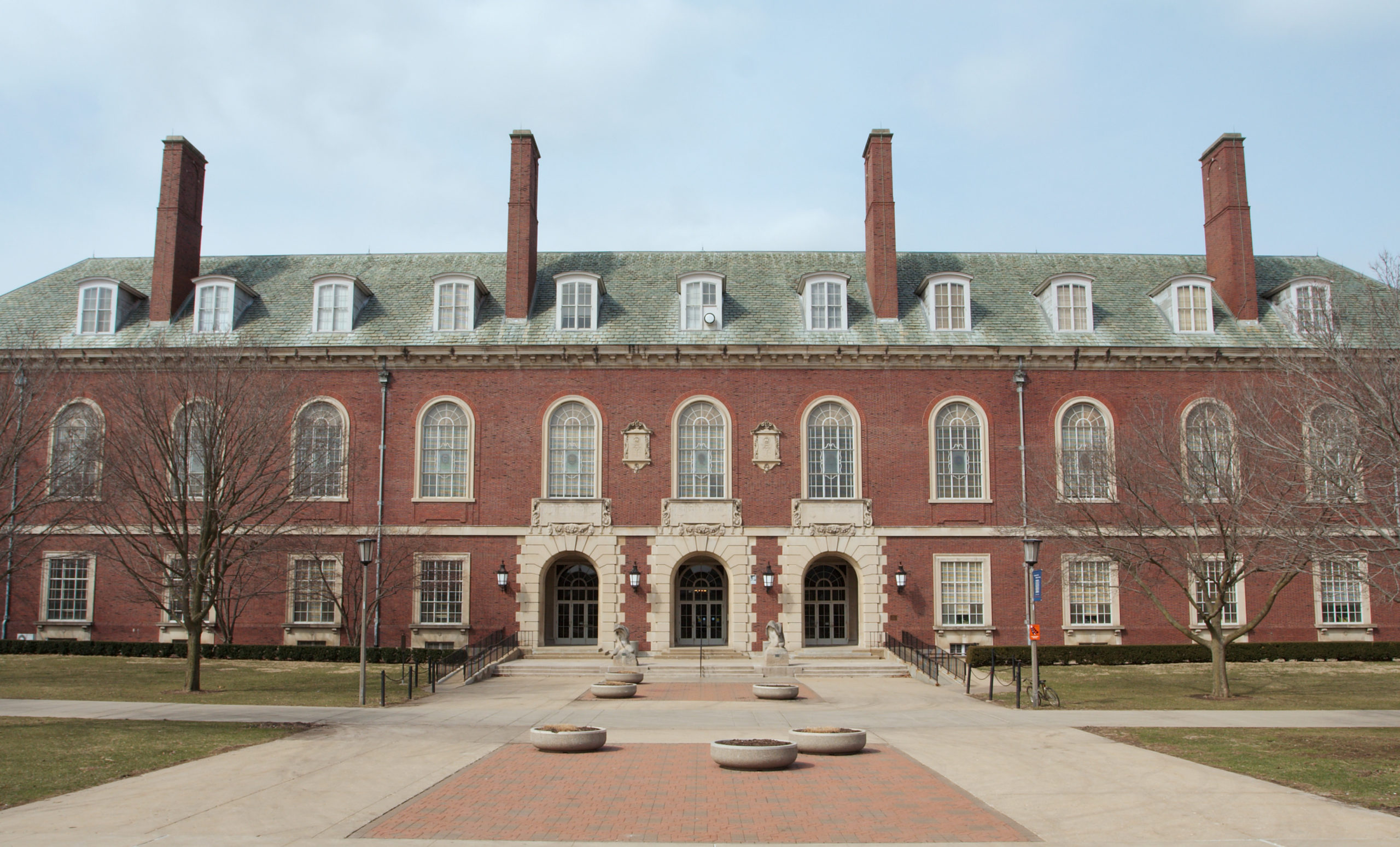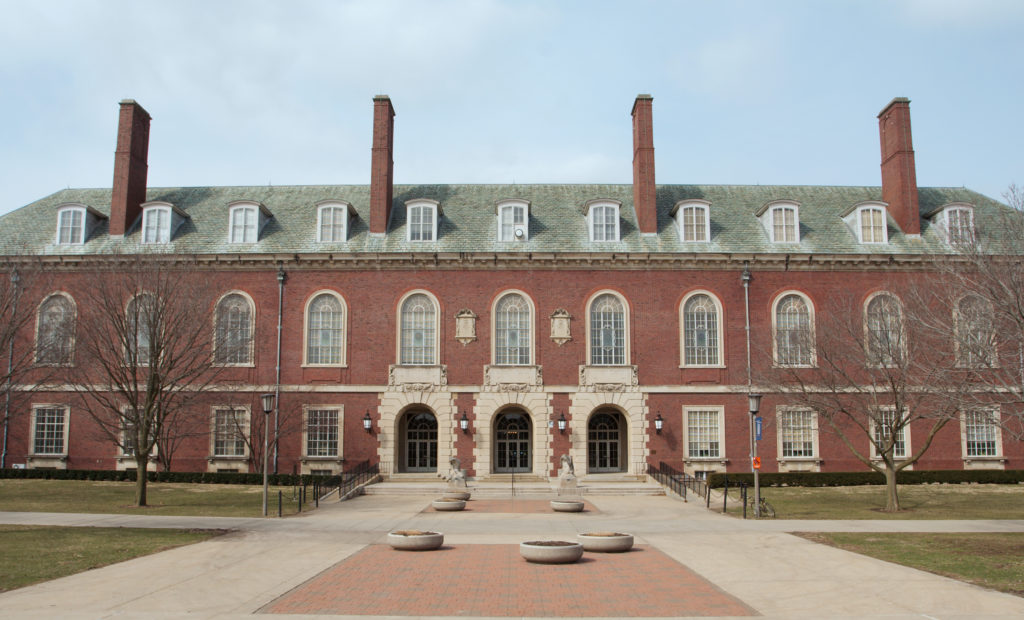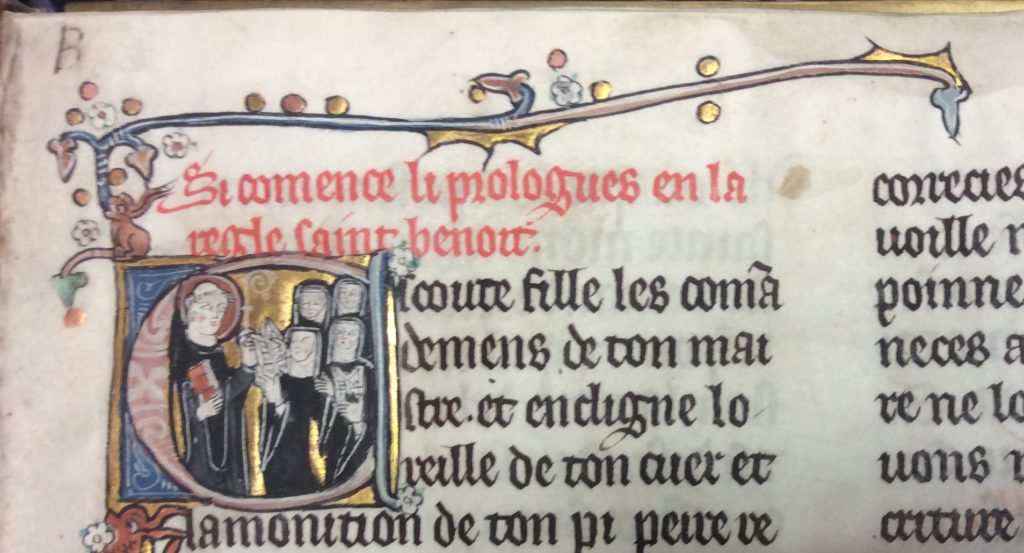
Posted by James Gordon Clark
30 April 2017In the heart of the American Mid-West, two and a half hours from Chicago, in the University twin town of Urbana-Champaign is a rare gem of a collection of medieval manuscripts.

Among them is a French translation of the Regula Benedicti, itself a relatively rare survival, particularly from such an early date (c. 1270), although vernacular versions of the rule were widely attested. The translation is also distinguished by an opening illumination (fo. 1ra) with an unusual depiction of Benedictine sisters gathered before the sainted father of the order and maker of the rule, clutching what would appear to represent their profession statements.

Pasted on to the lower margin of Chapter 58, ‘On the manner of receiving sisters’, (fo. 25r), is an original profession statement, written out in a formal textura hand on a separate slip of parchment (now trimmed). The statement is in the name of one Claudia de Brilly, who identifies herself as making her profession of vows to become a sister of the abbey of St Sulpice and St Glossinde at Metz in the presence of Abbot Benedict of the abbey of St Arnould in the same city. The family of Brilly were lords of Touffreville and Villers-Bocage.
This Benedict can be identified as Benoit Juville who held the abbacy of St Arnould between 1545 and 1566, defending the ancient abbey church even as the Emperor Charles V laid siege to Metz in 1552. Abbé Benoit was forced to lead his brethren to the relative safety of the city’s Dominican convent, although the Imperial siege ultimately proved unsuccessful. The sisters of St Glossinde, however, held firm and, for all the tensions outside, young Claudia’s early years under vows were uninterrupted.

In several different ways the manuscript represents continuities in medieval monastic history: the remarkable resilience of female observance at Metz, which began in the 7th century and persisted until August 1792; the enduring role of Metz, once the crucible of the Gorze reform, as a monastic hub; and the survival of the ceremonial of profession, and the materiality of the rule within it, even as the boundaries, indeed the polities of the old European Christendom came apart at the seams.